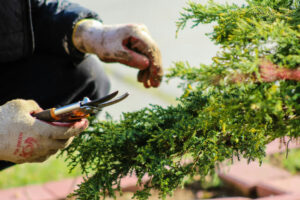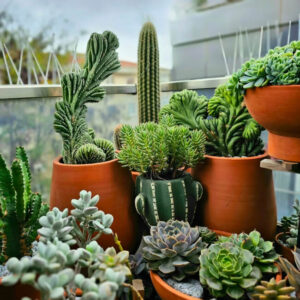If you’ve ever gone out in the morning to find half your veggie patch stripped or bite marks in your ripening fruit, you’re probably dealing with possums. These nocturnal visitors are part of Australian life, but that doesn’t make them any less frustrating when they’re treating your hard work like their personal buffet. The good news is that there are practical, humane ways to protect your garden and still live peacefully with local wildlife.
Understand Possum Behaviour
Before you can stop possums, it helps to know what attracts them. Brushtail and ringtail possums are the two most common types in urban gardens. They are most active at night, feed on fruit, flowers, leaves, and vegetables, and are excellent climbers. If you have tall trees, fruiting plants, or climbing access to your roof, chances are you’ve got an open invitation for possums.
Ways to Protect Your Garden from Possums
Possums may be crafty climbers and persistent nibblers, but with the right strategies, you can protect your fruit trees and veggie patch. Here are effective, wildlife-friendly methods on how to keep possums out of your garden.
Secure Your Fruit Trees
Fruit trees are possum magnets, especially during ripening season. Here are some effective steps to protect them:
- Fruit tree netting: Use wildlife-safe netting with small holes (less than 5mm) to stop possums but prevent them from getting tangled. Drape the net tightly over the tree and secure it at the base.
- Tree guards: Wrap smooth plastic or metal sheeting around the trunks of fruit trees. This makes it difficult for possums to climb.
- Harvest early: Pick fruit as soon as it’s ripe. The longer it stays on the tree, the more likely possums will get to it first.
Protect Your Veggie Garden
Veggie patches are just as tempting as fruit trees. Protecting them takes some planning:
- Possum-proof fencing: Build a sturdy fence around your garden with smooth sheeting at the top so they can’t grip and climb over. Aim for at least 1.5 to 2 metres high.
- Garden netting: Cover veggie beds with wildlife-safe mesh, making sure it is secured tightly at ground level.
- Cage structures: Create walk-in enclosures with netting or wire mesh to cover entire veggie plots. These double as protection from birds and other pests too.
Use Natural Deterrents
Sometimes you don’t need full structures. Possums dislike strong smells and unusual textures, which you can use to your advantage.
- Smells: Spraying diluted garlic, chilli, or commercial possum deterrent around plants can discourage them. Just remember to reapply after rain.
- Lights and sprinklers: Motion-activated garden lights or sprinklers can startle possums and train them to avoid the area.
- Plant choices: Possums prefer soft leaves and sweet fruit. Mixing in plants they dislike, such as lavender, mint, or rosemary, can make your garden less appealing.
Block Access Routes
Possums are clever climbers. They use trees, fences, pergolas, and even power lines to move around. Identifying and limiting these routes makes your garden harder to reach. Trim branches that hang over veggie beds or fruit trees, and consider installing possum guards on fences or poles.
When Possums Enter Your Roof
While garden damage is frustrating, possums in the roof are a bigger problem. They can cause noise, odours, and damage to insulation or wiring. This is when it’s best to call in professionals.
“It’s actually not that common for us to catch possums in gardens,” says Paul from True Blue Pest Control. “Most of the time, we get called in for possum removal in Sydney when possums enter the roof spaces of buildings. If that happens, you should call professionals for safe, humane catching and relocation. We then seal up all entrance points and put measures in place to protect your home from further entries. As a tip, cutting back any tree branches within 1.5 metres of your roof makes it much harder for possums to reach and gain access to your roof in the first place.”
Find the Balance: Wildlife and Gardening
It’s important to remember that possums are a protected species in Australia. Relocating them more than 50 metres is illegal without a licence, and harming them is against the law. The goal is to make your garden less attractive, not to remove possums from the environment entirely. By using protective barriers, natural deterrents, and safe practices, you can reduce damage while still respecting wildlife.
Final Thoughts On Protecting Your Gardens From Possums
Possums in your veggie patch or fruit trees can be a real headache, but they don’t have to win. With netting, fencing, natural repellents, and smart garden planning, you can keep most of your crops safe. If they find their way into your roof, that’s the time to bring in experts like True Blue Pest Control, who can humanely relocate them and secure your home against future invasions. Combining these strategies means you’ll enjoy more of your harvest and less frustration, while possums stay safe in their natural habitat.
Published on September 3, 2025 by Maisie Blevins
Last Updated on September 3, 2025




